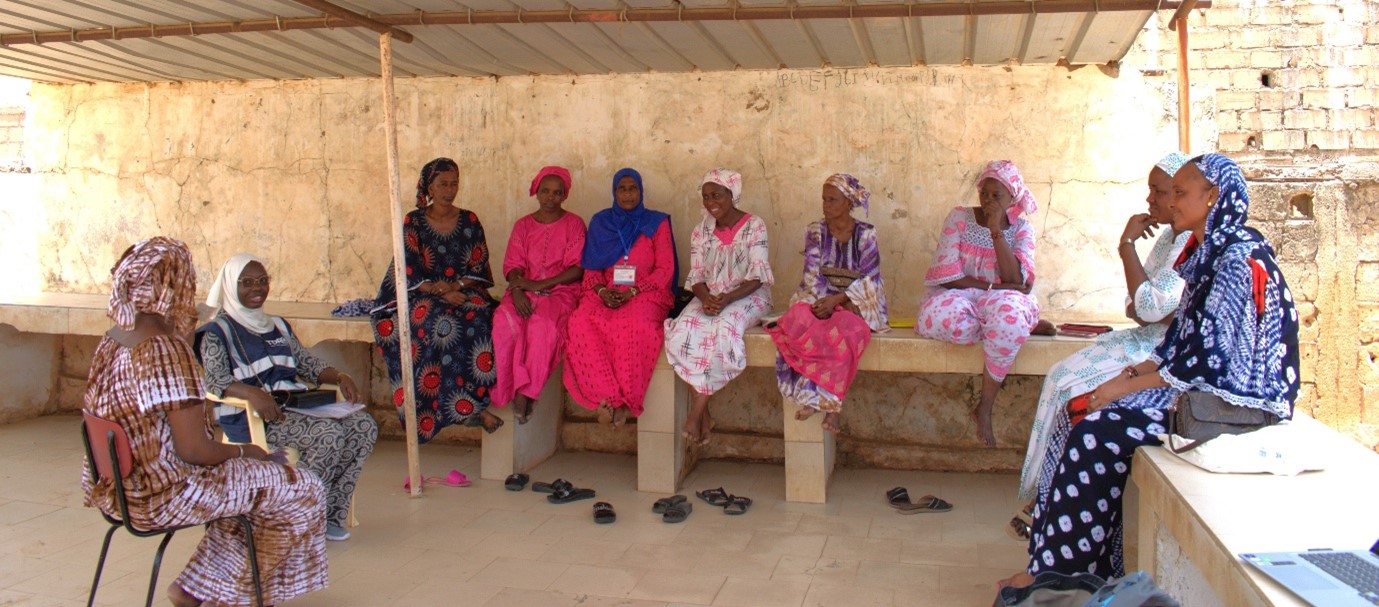TDR supported the Pasteur Institute of Dakar and Senegal’s Ministry of Health and Social Action in the evaluation of a case study on community-based surveillance for early detection of epidemics and health threats in pregnant women, mothers and newborns.
In 2012, Senegal established community surveillance and alert committees for early detection of health threats in pregnant women, mothers and newborns. Later, epidemic-prone diseases and unusual health events were added, and the integrated committees were extended to all districts in 2022.
However, as these committees did not perform as expected, the Division of Prevention of the Ministry of Health and Social Action (MHSA) initiated a project in June 2024 to strengthen and sustain community-based surveillance (CBS). This initiative is being carried out in collaboration with the Division of Health System Strengthening of the Pasteur Institute of Dakar (IPD) in Dakar, Kedougou and Matam. TDR has supported the evaluation component of this implementation research project, with the goal of informing the integration of CBS into Senegal’s Syndromic Sentinel Surveillance (4S) and focusing on long-term sustainability and potential scale-up.
A mixed-methods implementation research study was conducted to evaluate the implementation, acceptability and impact of the CBS model on the management of health threats, as well as the perceptions and ownership of the community health workers (CHWs), in order to optimize its effectiveness and social impact.
As part of this project, a TDR-supported scientist visited Agnam Civol in the Thilogne Health District (Matam Region) in July 2025 to directly interact with the community actors involved in the project. Eighteen CHWs, alongside health officials from the district, region and Ministry of Health and Social Action were interviewed. The discussions with CHWs explored their views on CBS, their roles, challenges and recommendations.

Focus group discussion with some community health workers in Agnam Civol, Matam, Senegal, July 2025. Credit: TDR/Gildas Yahouedo
Community health workers unanimously praised the CBS model for improving disease awareness, health education and communities’ trust of health services. They described their roles in conducting home visits, organizing health talks, identifying and reporting suspected cases, guiding patients to health posts and supporting vulnerable individuals. They also engage in reproductive health activities, voluntarily assist financially struggling patients and maintain close ties with the community to ensure inclusive health responses.
Despite its success, the community-based surveillance model faces challenges such as limited training for CHWs, literacy barriers and financial constraints affecting access to care. CHWs also reported the need for broader disease coverage, better reporting tools and stronger logistical support.
Proposed solutions to improve community-based surveillance
To address these challenges, CHWs proposed several solutions: providing financial and material incentives, creating local solidarity funds, expanding disease surveillance, improving training and supervision, upgrading health posts to health centres and supplying transport vehicles (motorbikes, ambulances). Support for social mobilization and health insurance enrolment were also emphasized.
“The sustainability of community-based surveillance depends on equipping community health workers with tools, training, and recognition, while fostering community ownership and adapting to local realities,” said Mrs Mame Yacine, a social anthropologist at the Pasteur Institute in Dakar,
The Agnam Civol case underscores the importance of operational research and community support in early detection and response to diseases. “Community health workers are the backbone of our surveillance system in remote areas. Their proximity and vigilance make them indispensable. We are committed to supporting and scaling up CBS to ensure timely responses and healthier communities,” said Mr Alioune Sylla from the Prevention Division of the Ministry of Health and Social Action.
The next steps for the team on this implementation research project will be to present the results and recommendations to stakeholders at the national and community level. A workshop will be organized to discuss the recommendations, followed by validation during a steering committee meeting. The case study will then be documented and submitted to the scaling-up commission. CBS should be launched at the national level, with a planned national expansion through the 4S network, targeting three new sites per year.
For more information, please contact Dr Corinne Merle.

